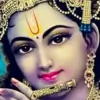Originally posted by: Ashwini_D
@ abhijitbasu
First of all, it is great to have you here on this forum Sir.Mahabharata is filled with fascinating characters, but one that I find most interesting is Yudisthir, who might come across as bland and insipid at first with just a cursory reading of the epic, but (I think he) is as layered a character as anybody else. Deemed as Dharmaraj, he seems to have a weakness for dice. He is also central to the plot as the text follows his growth as a person till the very end and it is his victory over earthly attachment that is celebrated at the end. All of us on this forum have tried dissecting his behaviour ad nauseam, especially during the dice game, which is quite baffling to our modern sensibilities. He is supposed to be Dharmaraj, but he seems to slip up during that fateful day, completely losing control of his rational faculties and appears to momentarily forget his dharma, of which he is considered to be an expert. Of course we might be unaware of certain moral codes that were prevalent during those times and hence drawing a judgement based on present day value systems would prove fallacious.I would be grateful if you could share your thoughts on him.
That precisely is the point. Yudhishthir lacks the glamour of Arjun or Karna, but arguably he is the MB's undeclared protagonist (leaving aside Krishna's transcendental role). After all, the epic's sublime denouement of bodily ascent to heaven features Yudhishthir, and Yudhishthir alone. The theme is dealt with in one full chapter (titled 'Pilgrim's Progress') of my book. Your point regarding his addiction to dice has been a matter of debate. One ethnological explanation is that of Gerrit Held: Dice-play was the means of circulation of tribal wealth (in ancient India and Iran), and Yudhishthir as the Dharmaraja, or acclaimed upholder of tradition had to accept a call to dice, which was also deemed as a Kshatriya point of principle. What really impresses me (and others too) is the way Y keeps learning from the visiting sages and from his own experience and graduates to the level of a true Jnani, a scholar extraordinaire. His answers to the questions put by the baka-yaksha constitute the quintessence of the MB as a sourcebook of liberated wisdom.































